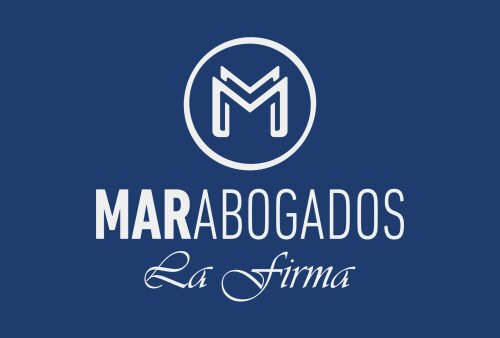Best Collaborative Law Lawyers in Las Palmas de Gran Canaria
Share your needs with us, get contacted by law firms.
Free. Takes 2 min.
Free Guide to Hiring a Family Lawyer
List of the best lawyers in Las Palmas de Gran Canaria, Spain
About Collaborative Law in Las Palmas de Gran Canaria, Spain
Collaborative Law is an alternative dispute resolution method gaining recognition in Las Palmas de Gran Canaria, Spain. It is designed to help parties resolve legal disputes, particularly family and civil matters, outside traditional court proceedings. In the collaborative process, both parties work with trained collaborative lawyers who are committed to reaching a mutually beneficial agreement without resorting to litigation. The focus is on open communication, transparency, and problem-solving, allowing participants to maintain control over the outcome rather than leaving decisions to a judge.
Why You May Need a Lawyer
You may require a collaborative law lawyer for several reasons. Common situations include divorce or separation, child custody and visitation arrangements, division of assets, business disputes, and inheritance issues. If you wish to resolve conflicts amicably, maintain privacy, protect personal or business relationships, and avoid lengthy court battles, a collaborative law approach could be beneficial. A lawyer trained in collaborative techniques can guide you through the process, ensure your rights are protected, and help draft legally binding agreements.
Local Laws Overview
Collaborative Law in Las Palmas de Gran Canaria operates within the framework of Spanish law, with specific codes governing family, civil, and business matters. While collaborative law is not yet regulated by distinct national statutes, the principles align with the existing legal emphasis on alternative dispute resolution. Agreements reached through the collaborative process can be formalized before a notary or submitted for court approval to ensure enforceability. Lawyers involved should be specially trained in collaborative practices, and all parties must agree in writing to the nonadversarial process. If participants cannot reach a resolution, they may terminate the collaborative proceedings and seek resolution through judicial means.
Frequently Asked Questions
What is the main goal of Collaborative Law?
The main goal is to resolve disputes amicably, focusing on mutual respect and creative problem-solving, with the help of collaboratively trained lawyers instead of resorting to court litigation.
What types of cases are best suited for Collaborative Law in Las Palmas de Gran Canaria?
Family matters such as divorce, child custody, visitation, spousal support, and division of property, as well as civil and business disputes, are commonly handled through collaborative law.
Do both parties need to have a collaborative lawyer?
Yes, each party should have their own lawyer trained in collaborative law to ensure balanced representation and commitment to the process's principles.
Is the collaborative law process confidential?
Yes, discussions and documents shared during collaborative sessions remain private, except in cases where reporting is required by law.
Can agreements reached through collaborative law be legally binding?
Yes, agreements can be formalized through notarial deeds or judicial approval, making them legally enforceable in Spain.
What happens if the collaborative process fails?
If an agreement cannot be reached, the process ends. Both parties may choose new lawyers and pursue the matter through the courts.
How long does the collaborative law process usually take?
It varies depending on the complexity of the case, but it generally takes less time than traditional litigation, often a few weeks to several months.
Is collaborative law suitable for cases involving domestic violence or significant power imbalances?
Collaborative law may not be appropriate in such situations. Your lawyer can assess whether this approach is suitable or recommend alternative methods.
Do I need to attend court if I use collaborative law?
Generally, court attendance is not required unless your agreement needs judicial ratification or if the collaborative process does not result in resolution.
What qualifications should I look for in a collaborative lawyer?
Seek a lawyer who is trained and experienced in collaborative law and familiar with local and Spanish legal procedures, as well as reputable professional associations.
Additional Resources
For more information or support regarding collaborative law in Las Palmas de Gran Canaria, consider contacting:
- The Illustrious Bar Association of Las Palmas (Ilustre Colegio de Abogados de Las Palmas) for referrals to trained collaborative lawyers
- The Spanish Association of Collaborative Practice (Asociación Española de Práctica Colaborativa) for educational resources
- Local family courts and mediation centers for guidance on dispute resolution options
- Municipal social services, especially in family or custody matters
Next Steps
If you believe collaborative law may help resolve your dispute, start by consulting a lawyer trained in the collaborative process. Gather relevant documents and consider your goals for the process. Be prepared to engage in open and honest discussions, and remember that the aim is cooperation rather than confrontation. Your lawyer can guide you on whether collaborative law is the best fit for your situation and explain each step of the process. Acting promptly and seeking professional legal advice ensures your rights are protected and paves the way for an amicable, efficient resolution.
Lawzana helps you find the best lawyers and law firms in Las Palmas de Gran Canaria through a curated and pre-screened list of qualified legal professionals. Our platform offers rankings and detailed profiles of attorneys and law firms, allowing you to compare based on practice areas, including Collaborative Law, experience, and client feedback.
Each profile includes a description of the firm's areas of practice, client reviews, team members and partners, year of establishment, spoken languages, office locations, contact information, social media presence, and any published articles or resources. Most firms on our platform speak English and are experienced in both local and international legal matters.
Get a quote from top-rated law firms in Las Palmas de Gran Canaria, Spain — quickly, securely, and without unnecessary hassle.
Disclaimer:
The information provided on this page is for general informational purposes only and does not constitute legal advice. While we strive to ensure the accuracy and relevance of the content, legal information may change over time, and interpretations of the law can vary. You should always consult with a qualified legal professional for advice specific to your situation.
We disclaim all liability for actions taken or not taken based on the content of this page. If you believe any information is incorrect or outdated, please contact us, and we will review and update it where appropriate.











